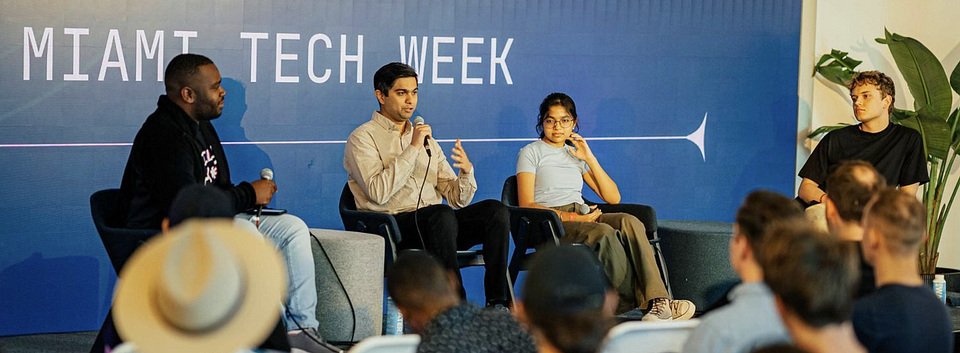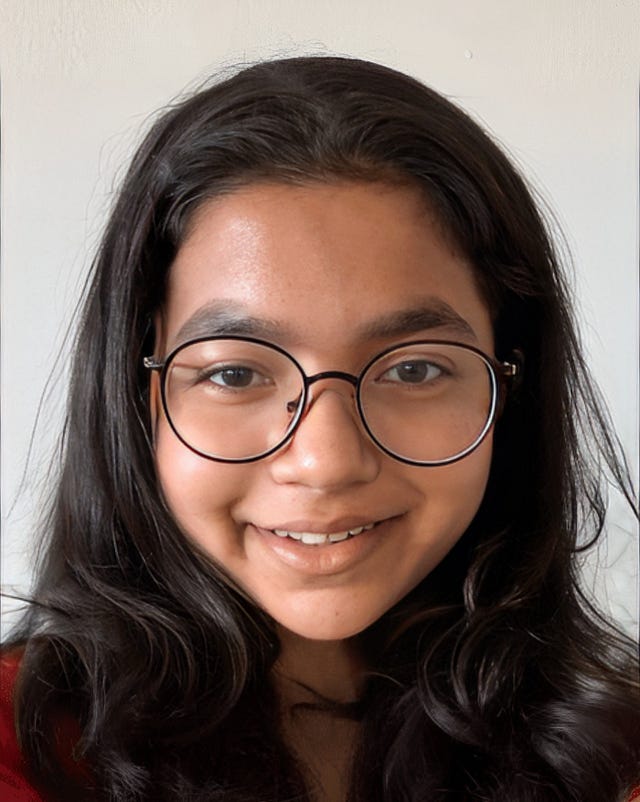Don’t be Afraid to Leave Your Comfort Zone. Living with and building among highly experienced people at the Hacker Fellowship, although exciting, was super out of my comfort zone. But it helped push me forward in great ways.
Starting something new is scary. Learning to believe in yourself can be a critical precursor to starting a new initiative. Why is it so important to learn to believe in yourself? How can someone work on gaining these skills? In this interview series, we are talking to business leaders, authors, writers, coaches, medical professionals, teachers, to share empowering insights about “How To Learn To Believe In Yourself.” As a part of this series we had the pleasure of interviewing Pranjali Awasthi.
Pranjali is the Founder of Delv AI, an end-to-end textual search platform for data analysts. Delv has fundraised from AngelList Quant Fund, On Deck, Backend Capital, and notable angel investors such as Lucy Guo (Co-Founder at Scale AI).
Thank you so much for joining us in this interview series! Before we dive into the main focus of our interview, our readers would love to “get to know you” a bit better. Can you tell us a bit about your childhood backstory?
I was born and raised in India, where I grew up until I was 10. After that, I immigrated to the United States with my family where I enrolled in school and started my journey toward where I am today.
What or who inspired you to pursue your career? We’d love to hear the story.
I’ve always enjoyed reading about tech entrepreneurs that have built successful companies. Each of their stories has inspired me to try my hand at building my own cool and unique technology. Also, Lucy Guo — CEO of Passes and the first investor in Delv — continues to be a solid inspiration to me.
Can you share a story about the funniest mistake you made when you were first starting? Can you tell us what lesson you learned from that?
During a demo day at HF0 — a 12-week residency for engineers building companies — my web-app crashed while I was presenting in front of the entire cohort and several invited investors. The mistake I had made was simple: it turned out I had accidentally commented out a critical line of code. What was an embarrassing moment though ended up being a success after all, because I secured my first big investor from this event and presentation.
What are some of the most interesting or exciting projects you are working on now? How do you think that might help people?
I’m currently working to build Delv AI, an end-to-end textual search platform for data analysts. We are serving 100+ individual users and are planning to come out of beta to our waitlist of 5000+ users later this summer. I’m proud to say we have already raised from AngelList Quant Fund, On Deck, Backend Capital, and awesome angel investors, with more exciting updates on the horizon.
Can you help explain a few reasons why it is so important to believe in yourself? Can you share a story or give some examples?
In today’s highly social and competitive world, it’s easier than ever to fall victim to impostor syndrome, especially when you’re typically one of the youngest people in the room in almost every business or VC setting. One of the best ways I’ve found to overcome these feelings is by showing the world who you are and what you’re made of. Performing well to a large extent comes from believing in yourself — but the more you believe, the better you’ll perform!
What exactly does it mean to believe in yourself? Can I believe that I can be a great artist even though I’m not very talented? Can I believe I can be a gold medal Olympic even if I’m not athletic? Can you please explain what you mean?
I truly believe in — and work to follow — the Japanese theory of “ikigai” — finding the overlapping center of your passions, your skills, and what the world needs. While I know I’m still very young and am continuing to learn the way of the world, I completely support the idea that belief in yourself is fueled from the combination of internal motivation, having some idea of a path to your goals, and incremental execution.
Was there a time when you did not believe in yourself? How did this impact your choices?
The journey of building a startup involves a ton of discouraging moments and challenges, which have prevented me from taking risks every now and then. In these moments, it’s often the belief in yourself that gives you what you need to push through and persevere.
At what point did you realize that in order to get to the next level, it would be necessary to build up your belief in yourself? Can you share the story with us?
In my case, winning in any capacity has always involved taking calculated risks — and believing in myself has been a crucial component to being able to follow through with those bets. In high school, I was working on challenging computer science projects, but couldn’t see a path to turning something into a startup. Today, I’m spending my time doing just that! Exploring the tech community, connecting with other inspiring minds, and putting my work out there has helped me build self-belief in ways that continue to propel me forward.
What are your top 5 strategies that will help someone learn to believe in themselves? Please share a story or example for each.
Seek Feedback and Act on it Fast. Self-improvement leads to confidence; opening yourself up to constructive criticism and being willing to make improvements can only do you good, especially in the world of entrepreneurship.
Celebrate Small Wins. When it comes to starting a business, even the smallest accomplishments should be celebrated! Build yourself up by acknowledging every win paving your path.
Network Strategically. Speaking from personal experience, thoughtful networking not only helped to build my confidence, it also got me and my ideas noticed! I would have never connected with my initial investor(s) if it weren’t for me truly putting myself out there when networking opportunities presented themselves.
Don’t be Afraid to Leave Your Comfort Zone. Living with and building among highly experienced people at the Hacker Fellowship, although exciting, was super out of my comfort zone. But it helped push me forward in great ways.
Find Mentors. Successful founders and advisors I’ve onboarded to Delv serve as awesome mentors that I look to for guidance and support as I continue my entrepreneurial journey. They each help me to overcome challenges and find a path forward.
Conversely, how can one stop the negative stream of self-criticism that often accompanies us as we try to grow?
Looking back at past accomplishments and challenges also helps me to keep myself motivated, especially when self-doubt lingers in my mind. Having these obstacles and wins in the rear-view mirror — and reflecting on them accordingly — serve as a sign that you are pushing yourself in the right direction and enable me to keep moving forward.

Are there any misconceptions about self-confidence and believing in oneself that you would like to dispel?
It’s easy to look at highly successful people and think they’ve never had issues with confidence — but of course, everything looks amazing from the outside. After meeting several of them over the past year, I’ve come to understand that we’re all working through our own individual uphill battles, no matter how appearances may seem. I’ve also noticed that almost everyone I encounter in the business world has a story or two about overcoming basic self-doubt at some point in their lives, and continuing to do it as they go after bigger and better things. Eventually they become pros at repeating the cycle of taking calculated risks and accomplishing goals.
What advice would you give to someone who is struggling with imposter syndrome?
My biggest piece of advice to people struggling with imposter syndrome is to find people that support you in your growth — even better if those people can serve as role models, living through a similar journey and dealing with similar circumstances to yourself.
If you could inspire a movement that would bring the most amount of good for the greatest number of people, what would that be? You never know what your idea can trigger.
The larger section of third world countries still deals with a dearth of high quality educators and infrastructure. I’ve been privileged enough to grow up in an ecosystem where education and skill development was emphasized and believe that equitable quality education for the larger population would multiply society’s growth several folds.
Is there a person in the world, or in the US, whom you would love to have a private breakfast or lunch with, and why?
If I could sit down to a private meal with anyone, it would be Lex Fridman. He has spoken to multiple highly influential builders and thought leaders at length on his podcast, and I’d like to get a better understanding of his perspective on the world — I believe it would reflect the average of those he’s spent time talking to and I’d love to pick his brain.
How can our readers further follow your work online?
Thank you for these really excellent insights, and we greatly appreciate the time you spent with this. We wish you continued success.


